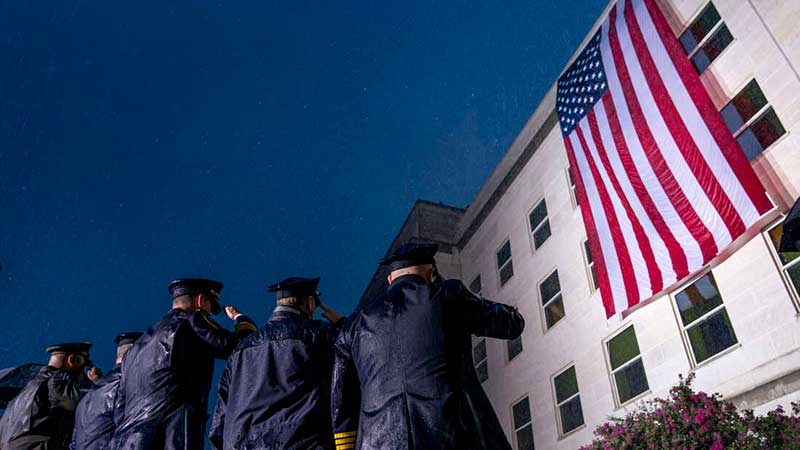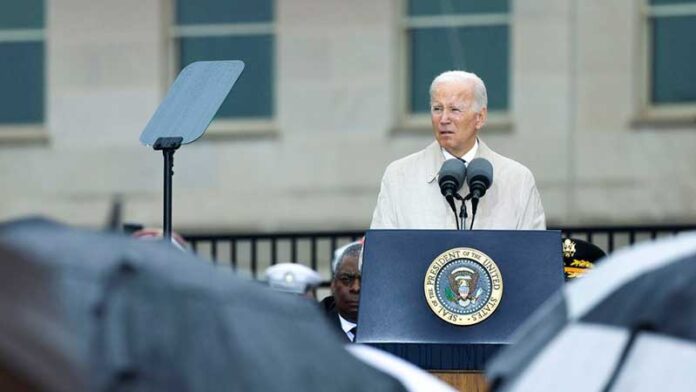Osama bin Laden attacked the twin towers of America on September 11, 2001 and then took refuge with the Taliban. Taliban gave refuge to Osama bin Laden while occupying Afghanistan 6 years ago. At that time, Afghanistan had become a good haven for terrorists. America attacked Afghanistan because the Taliban did not hand over Osama bin Laden and changed the course of Afghanistan’s history.
According to Robert Girner, the head of the CIA office in Islamabad, at that time, Osama bin Laden expected the United States to attack Afghanistan to arrest him and get caught in the trap of the Afghan war. Although bin Laden was killed, his prediction was almost correct.
America invaded Afghanistan on October 7. In the first US attacks, the residence of Mullah Omar, the leader of the Taliban at the time, was targeted with cruise missiles. In this attack, Mullah Omar survived and only a few of his relatives were killed.

At the same time as the US air attack, the attacks of the coalition forces of the Northern Front also began. The opponents of the Taliban started their attacks from the east and south of Afghanistan. On September 7, Kandahar, the center of Taliban power, fell and the group disintegrated. America and NATO established a new system in this country and a new government was formed. At the same time, the US and NATO continued to pursue Bin Laden and the Taliban, and for this reason, their forces remained in Afghanistan.
The Taliban had no place in the government of the republic that was formed in Afghanistan, that’s why two years later, with the support of Pakistan and the Pashtuns, they regrouped and started sporadic attacks against the foreign forces present in Afghanistan and the people of this country. During this time, the US did not seriously pursue and fight against terrorists and allowed the Taliban to recruit and gain power.
In 2014, NATO handed over full responsibility for Afghanistan’s security to the Afghan military, although NATO and US air support continued and Afghan soldiers were also trained. But in general, they acted weakly against the terrorists.
To the extent that Donald Trump, the President of the United States at the time, decided to completely withdraw from Afghanistan in 2018 and leave the security of Afghanistan completely to the Afghan government and army. The US withdrawal from Afghanistan was scheduled to begin in 2020. This American decision provided grounds for repeating history in Afghanistan.
Taliban tried with more motivation to regain power in Afghanistan. This time, this group started its work with negotiation and discussion, and at the same time, their scattered attacks continued in different parts of Afghanistan. But not a single city in Afghanistan was in the hands of this group.
By following the Doha agreement and committing to military withdrawal from Afghanistan, Trump made a wrong decision that Joe Biden, by implementing this decision, caused the defeat of the United States in the fight against terrorism in Afghanistan. After the Doha agreement and a series of internal betrayals, corruption in Ashraf Ghani’s government and the lack of management in the Afghan army, and the gradual withdrawal of America and NATO and the termination of support, the grounds were prepared for the Taliban to advance. While US and NATO forces were still inside Afghanistan, the Taliban occupied Afghan cities without conflict and reached the gates of Kabul.
Afghanistan was taken over by the Taliban and Afghanistan was in the same place as it was 20 years ago. After 20 years of fighting with Afghan terrorists, Afghanistan again fell into the hands of terrorists, and America and other countries are still threatened by more diverse groups with American and NATO military equipment.
America is in a situation where its leaders accuse each other of mistakes and failures regarding Afghanistan. And today, at the same time as the 21st anniversary of the terrorist attacks of September 11, Joe Biden talks about his successes in the fight against terrorists, and on the other hand, Trump still blames him.










